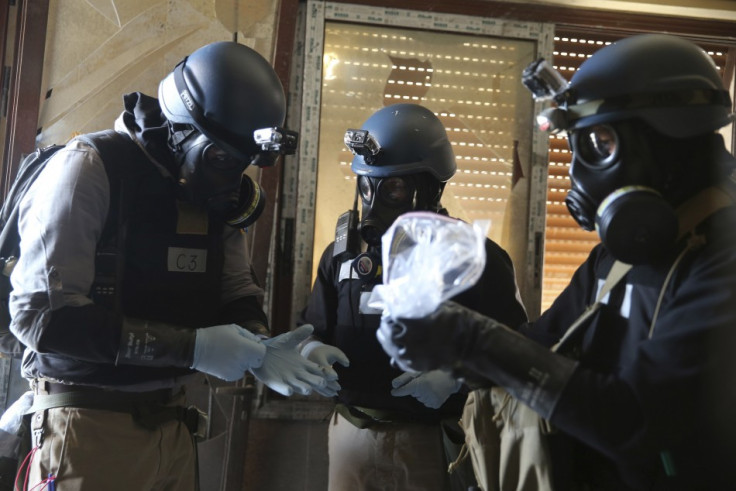Syria Asks for UN Protection Ahead of US Military Strike [VIDEO]
French government to hand over evidence that Assad was responsible for Ghouta chemical attack to lawmakers

The Syrian government has asked the United Nations to prevent the US launching military strikes in response to last month's chemical weapons attack in the Ghouta region.
Syria's state news agency Sana reported that the country's UN envoy Bashar Jafa'ari has written to the organisation's chief, Ban Ki-moon, urging him "to shoulder his responsibilities for preventing any aggression on Syria and pushing forward reaching a political solution to the crisis in Syria".
Jafa'ari also called on the Security Council to "maintain its role as a safety valve to prevent the absurd use of force out of the frame of international legitimacy".
He said the US should "play its role, as a peace sponsor and as a partner to Russia in the preparation for the international conference on Syria and not as a state that uses force against whoever opposes its policies".
US Secretary of State John Kerry said that 1,429 people, including 426 children, were killed in the Ghouta attack, which was allegedly perpetrated using sarin nerve gas. President Obama has promised that military action would be put to a vote in Congress, which ends its summer break on 9 September.
A spokesman for China's foreign ministry, Hong Lei, revealed that Washington has also briefed Beijing with evidence of the use of sarin in rebel-held areas on the outskirts of Damascus.
"The US side briefed China on what evidence the U.S. had in relation to the use of chemical weapons by the relevant party in Syria as well as the relevant decision by the United States," Hong said.
Hong added that China will support the UN inspectors' investigation on the use of chemical weapons, saying: "Any action by the international community ought to respect the rules of the UN Charter and basic norms of international relations and avoid further complicating the Syria issue and avoid further disaster for the Middle East."
Meanwhile France has promised it will hand over evidence to MPs on Monday that should prove Assad's regime was to blame for the chemical bombardment. "It will be a set of evidence of different kinds that will allow the regime to be clearly identified as responsible for the August 21 chemical attack," a source told AFP.
© Copyright IBTimes 2025. All rights reserved.





















